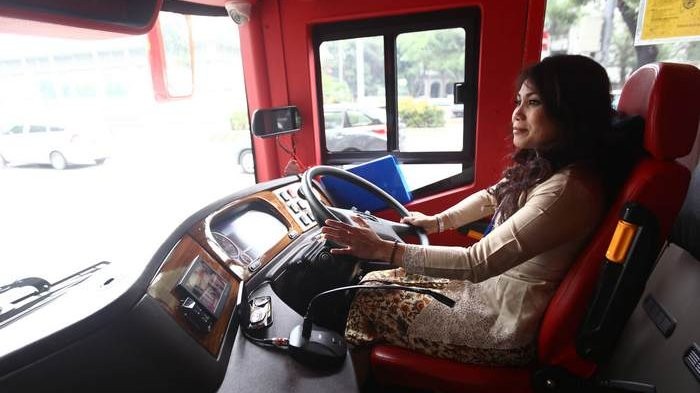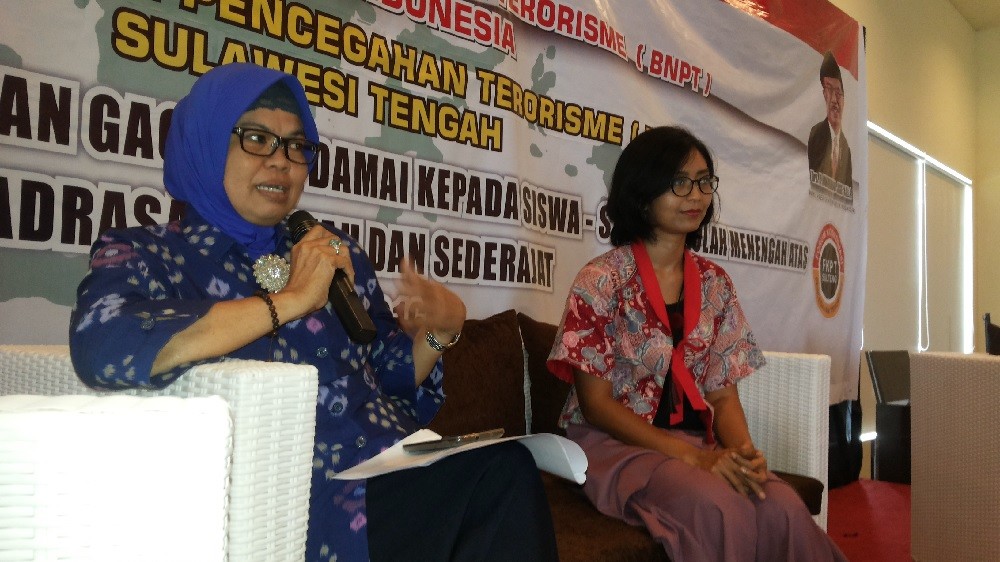Popular Reads
Top Results
Can't find what you're looking for?
View all search resultsPopular Reads
Top Results
Can't find what you're looking for?
View all search resultsRole of women seen as vital to resisting Islamic extremism
Change text size
Gift Premium Articles
to Anyone
T
he role of women in negotiating with and educating communities on peaceful Islamic teachings has proven to have had some effect in stemming the influence of violent extremist groups and healing affected communities, speakers at an international seminar said on Tuesday.
Several female clerics, scholars and activists from Muslim-majority countries, including Nigeria, Afghanistan, Pakistan and Indonesia, shared their experiences in the one-day discussion on female ulema. The discussion was part of the first congress of female ulema, which officially opened in the evening at the Kebon Jambu Al-Islamy boarding school.
In Nigeria, a country that is threatened by the Islamic militants Boko Haram, female ulema have started to get directly involved in education in a bid to spread tolerant Islamic teachings, the scholar Rafatu Abdulhamid said.
“Muslim women can play better roles than men in teaching and education. We can teach people and children that Islam is not what Boko Haram adopts, that Islam is tolerant and upholds peace,” Abdulhamid told The Jakarta Post after the discussion at the Syekh Nurjadi Islamic Institute.
Many of the female Muslim scholars, ulema and activists, she said, established educational programs for women and children about moderate Islamic teachings. Many also provided psychological support and trauma healing for female survivors of Islamic radicalism, including former followers of Boko Haram.
The counseling and education programs are crucial to healing communities that stigmatize girls and women who have been abducted, raped and impregnated, she said.
“Can [the mothers] throw their children into the dustbin?” Abdulhamid asked rhetorically.
Abdulhamid said radical Islamism, particularly in Nigeria, was caused by ignorance and the misuse of Islamic knowledge. People are made to believe that causing violence or killing is an act of worship, she said.
“Women are abducted and molested arbitrarily. Many women were forced to join the group instead of becoming the next victim,” she said.
 Woman driver of double-decker city tour bus wears kebaya traditional attire during the Kartini Day of women emancipation that falls every April 21. (Warta Kota/Angga Bhagya Nugraha)
Woman driver of double-decker city tour bus wears kebaya traditional attire during the Kartini Day of women emancipation that falls every April 21. (Warta Kota/Angga Bhagya Nugraha)
Afghanistan Ambassador to Indonesia Roya Rahmani said Muslim women could introduce a narrative of “dynamic Muslims.” She said Muslim women should be recognized as good negotiators because they could embrace people more effectively and tenderly than men.
From Pakistan, Bashra Qadeem shared her experiences promoting respect for different faiths and cultures in high schools in Peshawar, where communities often see teenage boys recruited into becoming suicide bombers.
Through “a very subtle approach,” Qadeem and her fellow activists communicate with mothers who have lost their sons to extremism and who have even “stitched suicide jackets” and promoted martyrdom.
Through dialogue, in which the mothers are eventually convinced that such “martyrdom” is wrong and not Islamic, the women could become “agents of change,” Qadeem said, and stop seeking out nephews and other teenage boys to be suicide bombers.
Speakers said the challenge was that even for women that were highly knowledgeable about Islam, too few were recognized as being on par with male ulema.
In Aceh, for example, Indonesia’s only province authorized to adopt sharia, the concept of female ulema still faces resistance, said researcher Eka Srimulyani.
Malaysian activist Zainah Anwar said the journey toward an Islam that upholds equality and justice remains a long and challenging one.
“But for us, there is no choice. We don’t want to emigrate. We must stay and fight for the country we want to live in,” Anwar said.










